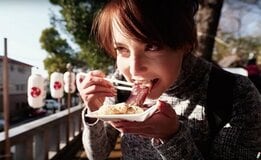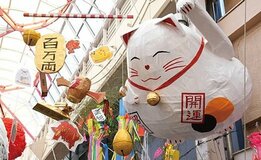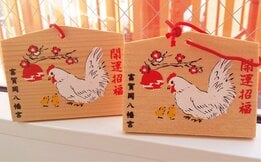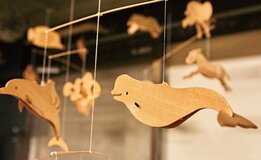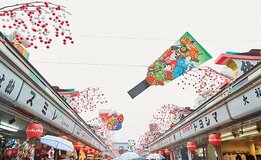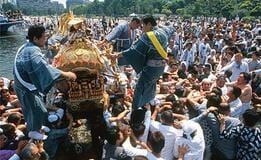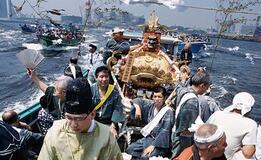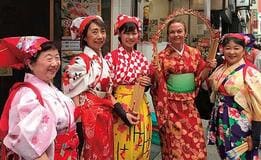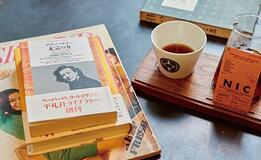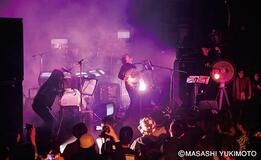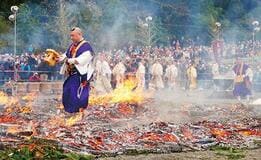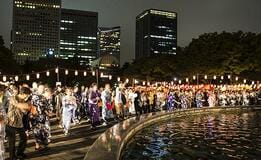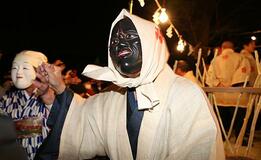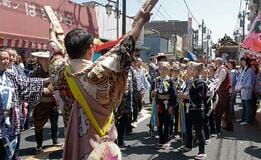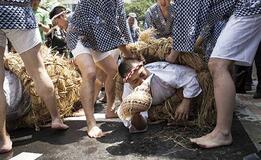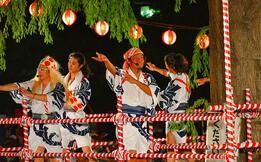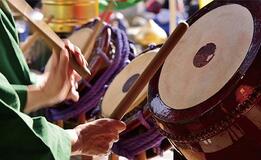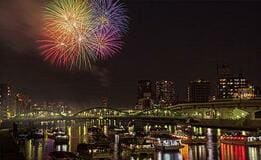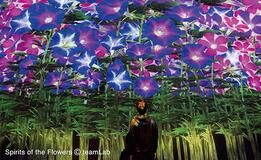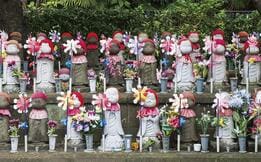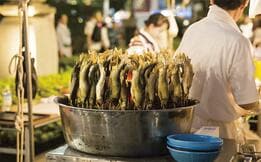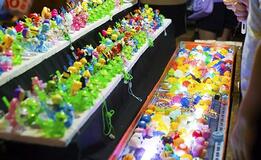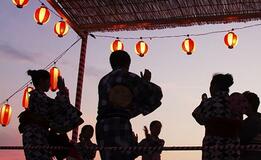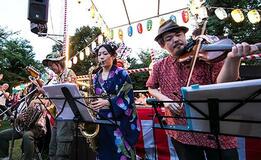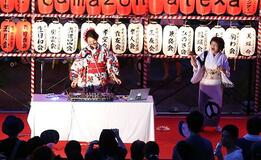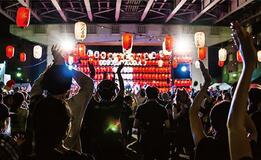【Vol.18】A stroll through the Kanda Used Book Festival. Columnist Madoka Yamasaki is enthralled by this famous Tokyo event
* * *
Jimbocho is the place to go in Tokyo for secondhand books.
This area is said to contain the greatest concentration of secondhand book shops anywhere in the world.
Searching the secondhand bookstores of Yasukuni-Dori Avenue and its backstreets has been part of my fieldwork since I was in my 20s. The hunt for secondhand books is exciting even if you are not a devout rare book enthusiast.
Fans of the Jimbocho area always look forward to the autumn. That is because the Kanda Used Book Festival is held from late October to early November. You’ll find secondhand book spot sales and auctions, but the main event, without question, is the open-air secondhand book market. The booths of secondhand bookstores, packed with secondhand books, line Yasukuni-Dori Avenue, forming a "gallery of books" over 500 meters long. It is said that over one million secondhand books are available for purchase here.
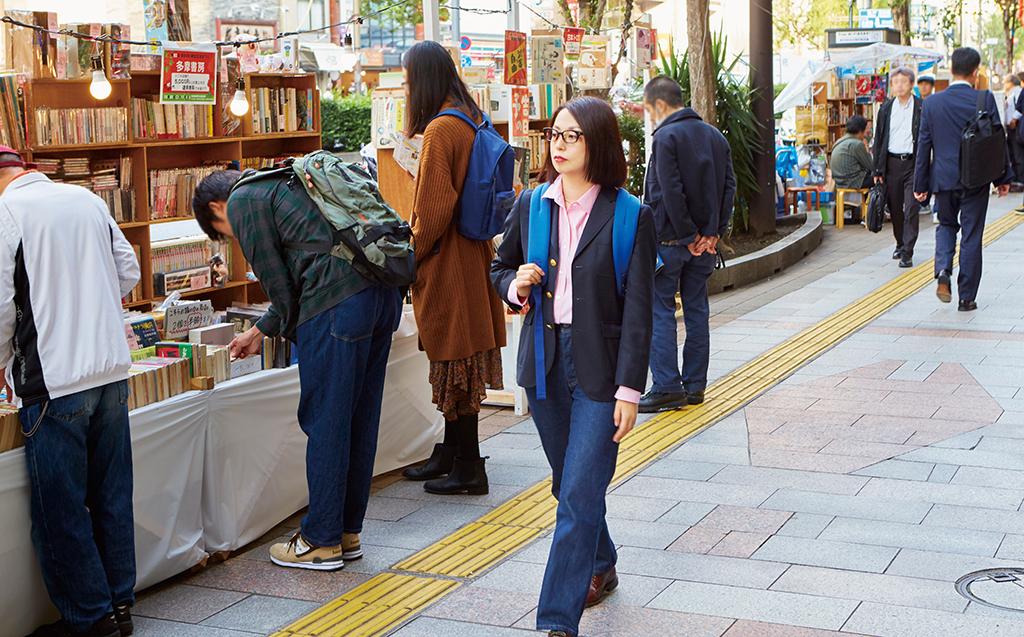
Secondhand book fans gather from across the country. While the shoppers tend to be older, quite a few young people can be seen as well. In recent years, foreigners have also become a noticeable presence, many appearing to be tourists. Even people who are not normally interested in old books are drawn to the secondhand book market to look for something interesting. When seen in this festive atmosphere so unlike the inside of a bookstore, the covers of the secondhand books are as bright and appealing as the toys or goldfish of street stalls.
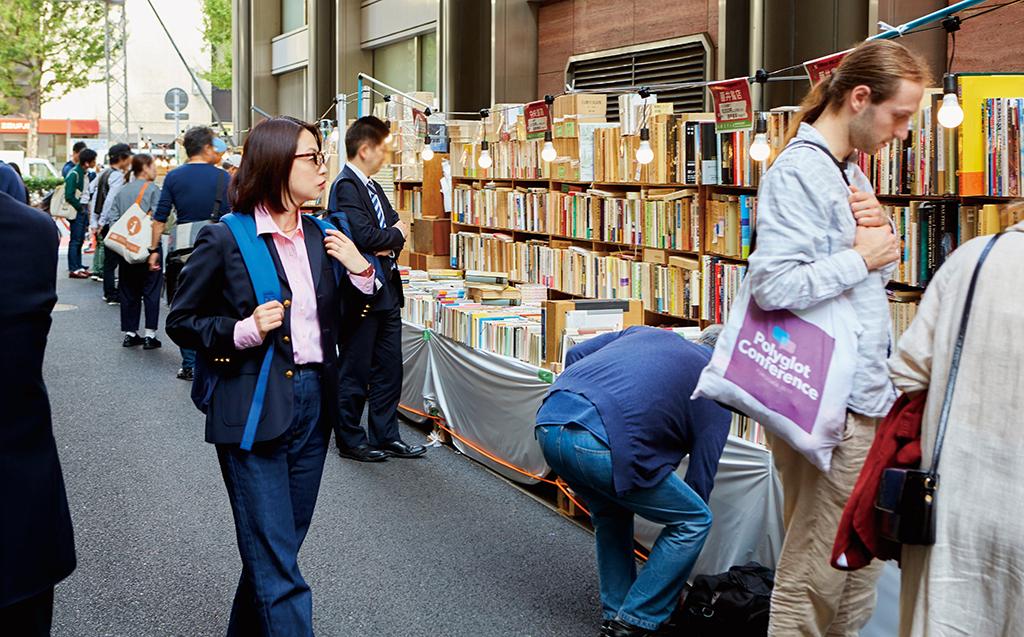
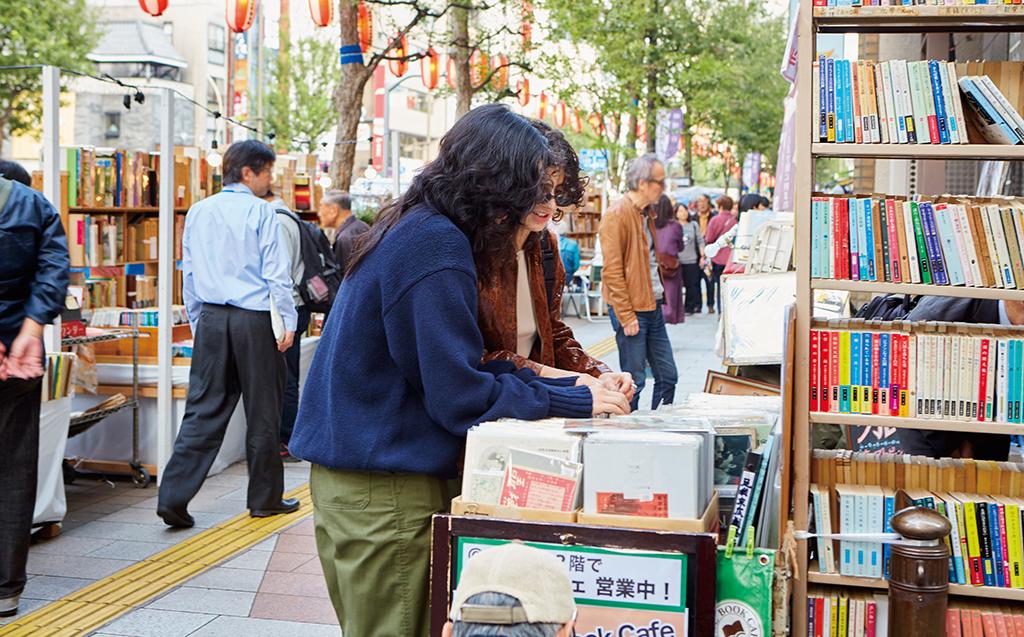
Buying books at the Used Book Festival is fun, whether the books are rare finds or ordinary fare. You find yourself springing for long-sought books that might be on the pricey side because, after all, "It's a festival!" You buy books you've been meaning to read if you find them in good condition, books you've never heard of and books you once owned but have since lost. You purchase books because of their beautiful covers or boxes. You scoop up collections of the works of your favorite authors and photographers. Before you know it, you’ve bought too many books, and sometimes they won't even all fit in your tote bag or backpack. But every encounter with a secondhand book is a once-in-a-lifetime experience. If you pass up this opportunity, you may never discover that book again. That doesn't just mean that you won't physically find it. Even if you do stumble across it elsewhere, it might not excite you in the same way as seeing it at the Used Book Festival. You might just pass it up, depriving yourself of a story you were meant to read.

This year I found a book in a box with sober colors in a splashed pattern, like that of a kimono. Its title, written by hand, was "Matsu" (directly translated, "Waiting"). It was a collection of essays by Tama Morita, an essayist with a long career extending from the 1930s to the 1960s. The distinctive design and binding of her books, which she herself directs, attracts legions of fans, and books like “Kimono Essays" and "Cotton Essays" are perennial favorites among female secondhand book lovers. Leafing through the pages of the book, I saw that it was her 20th book of essays, published in 1959. An essay entitled "New Year's Eve" caught my eye. According to the preface, Morita saw new diaries stacked up in a bookstore at the end of the year and decided that she would finally keep a diary all year long the following year. However, she could not decide whether to throw away the incomplete diary she had started that year. Reading this honest essay introduction, I decided that this would be the last book I would read this year. The books I buy at the Used Book Festival are my stockpile for the winter months. At the festival, I find myself looking for books that I want to snuggle up with warmly during the cold winter.
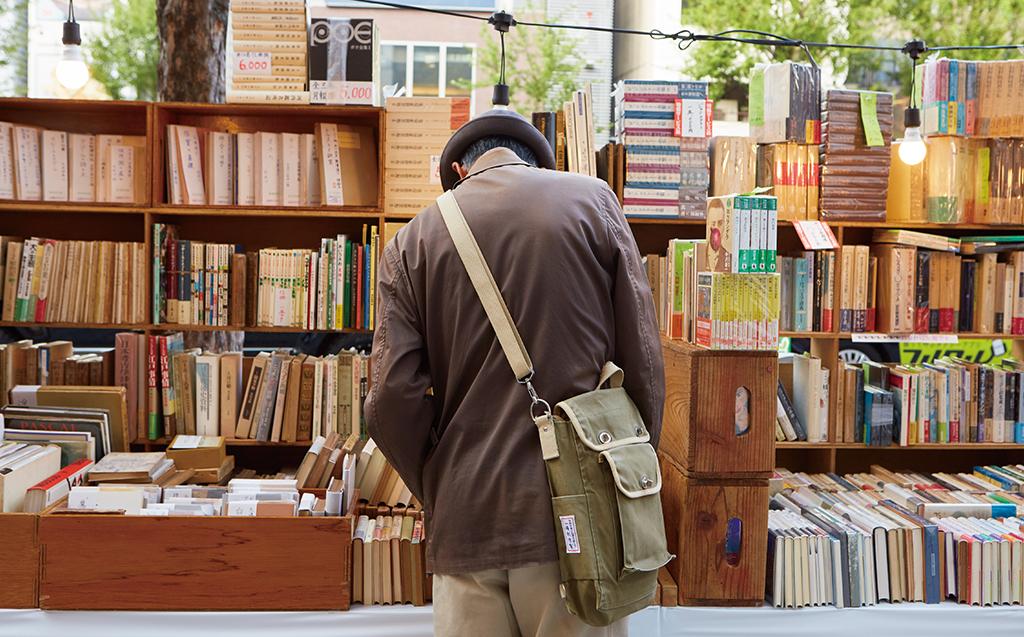
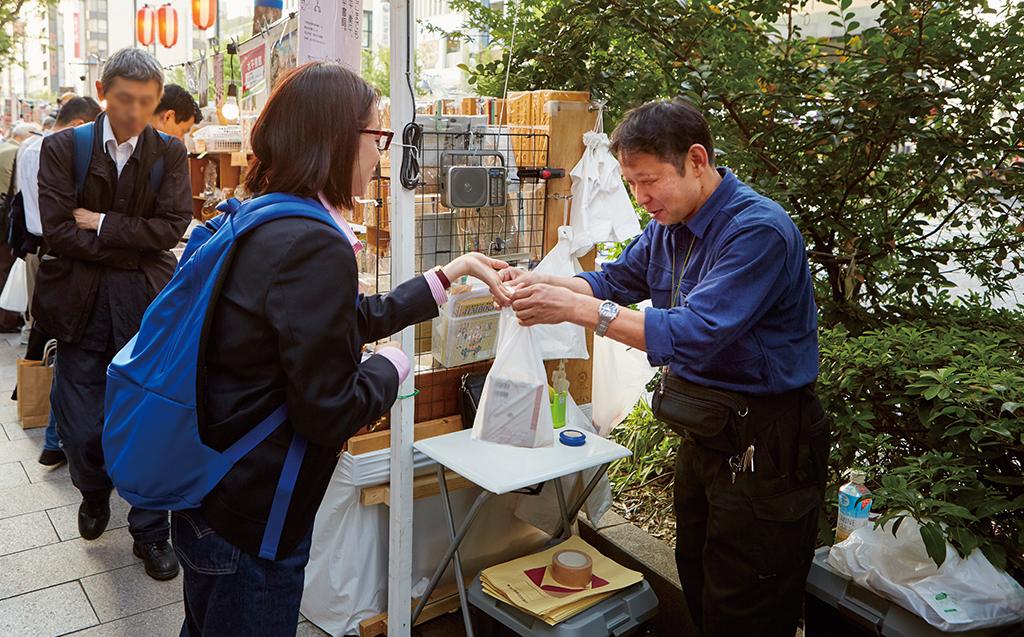
I bought Gertrude Stein's Everybody's Autobiography, read a passage in it about how Stein wanted to meet Dashiell Hammett, and then, like playing the telephone game, found myself purchasing An Unfinished Woman, the autobiography of his life partner, Lillian Hellman. I picked up George Orwell's Down and Out in Paris and London, which a woman shopkeeper in a New York secondhand bookstore had said contained many interesting depictions of food, and bought the novel That Cold Day in the Park, on which the Robert Altman film was based. The Kadokawa Bunko series of books, which used scenes from movies on their covers, was one of the series that I collected when my love of secondhand books had just begun. I also picked up a 1960s fashion magazine for reference purposes.
Each purchase was tiny, but it felt like I had brought in a huge catch. I took the books I bought at the Used Book Festival and set out for a favorite café or curry restaurant. That simple act felt enriching.
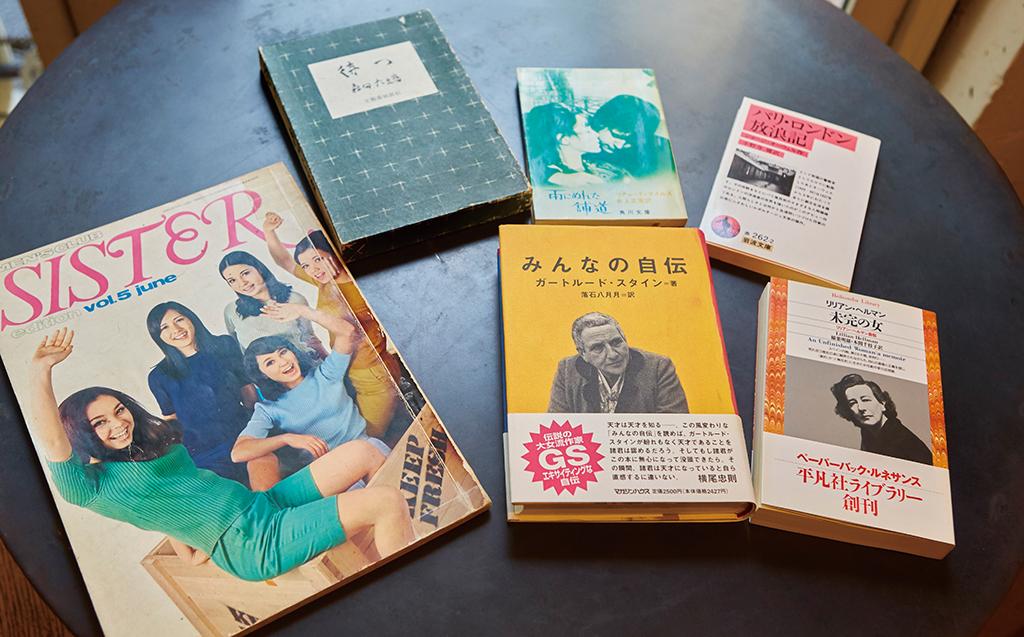
Text: Madoka Yamasaki
Madoka Yamasaki is a columnist and translator. She writes about topics such as women's culture, overseas culture, movies and literature. Her publications include "Reading Well is the Best Revenge" and "Movie Sentimentality: A Collection of Essays on Film by Madoka Yamasaki" (both published by Du Books). Her translations include Lena Dunham's Not That Kind of Girl (published by Kawade Shobo Shinsha). Instagram:@madokayamasaki
Photographs: Yukari IsaCooperation:The Kanda Used Book Festival(Japanese)
http://jimbou.info/news/furuhon_fes_index.html
N.B. The information on this site is correct as of August 2019. It is subject to change without notice, so please confirm the details before coming to the festival.
(This is a "Tokyo Tokyo Old meets New" Project.)


